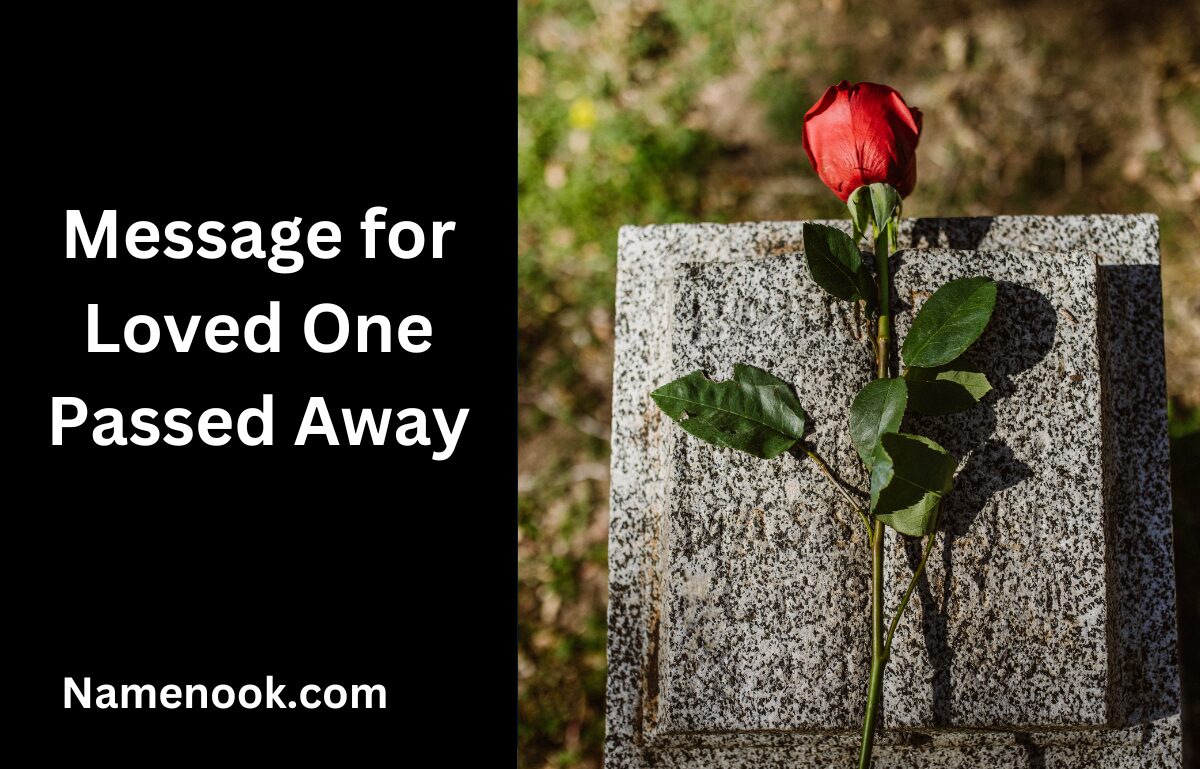Find heartfelt and comforting messages for a loved one who passed away. Express your love, share memories, and honor their legacy with meaningful words.
Losing someone you love is one of the hardest experiences in life. The grief can feel overwhelming, and sometimes, words just fail you. But writing a heartfelt message to honor their memory can offer comfort—not only to you but also to others grieving.
Whether you’re expressing love, saying goodbye, or sharing memories, a thoughtful message can preserve their presence in your heart.
Understanding Grief and Loss
Grief is a natural process when dealing with loss. It comes in waves, and everyone experiences it differently.
Whether you’re mourning a family member, friend, or partner, expressing your feelings in writing is a healthy way to process this emotional journey.
Why Writing a Message Matters
Words have power. When you write a message for a loved one who has passed away, you are giving your emotions an outlet.
It’s like talking to them one last time, sharing your love, your gratitude, or even the words you couldn’t say when they were alive.Also Read: Building Love and Trust
How to Write a Heartfelt Message
Writing a message for someone who has passed doesn’t need to be perfect; it just needs to come from the heart.
- Start with a clear intention: What do you want to say?
- Share your feelings: Be honest and express your love, grief, or gratitude.
- Include special memories: Moments you shared can make the message more personal.
- Offer a farewell: End with loving words of goodbye.
Examples of Messages for Different Situations
Short Messages for Sympathy Cards
- “Your memory will live on in my heart forever. Rest peacefully.”
- “Gone but never forgotten. I’ll cherish our moments together.”
Messages for Close Family Members
- “To my dearest [Name], your love was the light of our lives. I miss you deeply and will carry you with me always.”
- “Mom/Dad, you were my greatest support, my guide, and my hero. I will honor your legacy every day.”
Messages for Friends
- “Dear [Name], you were more than a friend; you were family. Thank you for filling my life with laughter and love.”
- “I will always remember your kindness, your smile, and the way you made life brighter.”
Messages for Colleagues or Acquaintances
- “It was a privilege to know and work alongside [Name]. They will be greatly missed.”
- “Sending my deepest condolences. [Name] made an impact on so many lives.”
Poetic Messages and Quotes
Sometimes, poetry can capture what’s hard to say in simple words:
- “Those we love don’t go away; they walk beside us every day.”
- “What we have once enjoyed, we can never lose. All that we love deeply becomes part of us.” – Helen Keller
How to Address Regrets in Your Message
If there were words left unsaid, a message can help you find closure. You might write:
- “I wish I had more time to say how much you meant to me. I hope you knew how loved you were.”
Writing for a Sudden Loss
When a loved one passes unexpectedly, finding the right words can be difficult. Simple messages like:
- “I’m heartbroken that you’re gone. I wasn’t ready to say goodbye, but I’ll carry your love with me forever.”
Writing for Someone Who Lived a Long Life
For someone who lived a full life, focus on celebrating their journey:
- “You lived a life filled with love, laughter, and kindness. I’ll forever be grateful for your lessons and love.”
Messages to Honor Parents or Grandparents
- “Your wisdom, strength, and love shaped who I am today. I will forever be proud to call you my [parent/grandparent].”
Messages to Honor Siblings
- “You were not just my sibling but my best friend. I miss you more than words can say.”
Messages to Honor a Spouse or Partner
- “You were my heart, my soul, and my everything. I will carry you with me every step of the way.”
How Messages Help in Healing
Writing allows you to express emotions that can otherwise feel trapped. It brings peace and a sense of closure, helping you heal while honoring their memory.
Cultural and Religious Considerations
Different traditions view death and mourning uniquely. Be respectful of the family’s culture or beliefs when sharing messages. For example, some cultures appreciate uplifting words, while others value solemn tones.
Conclusion
Writing a message for a loved one who has passed away is a beautiful way to express your love and honor their memory. Whether short or detailed, your words can provide comfort and healing during difficult times.
FAQs
- What should I include in a message for a loved one who passed away?
Include your emotions, memories, and a farewell message. - How long should my message be?
It can be as short or as long as you need—what matters is that it’s heartfelt. - What if I don’t know what to say?
Start with simple words of love or gratitude and go from there. - Can I use quotes or poems in my message?
Absolutely. Quotes and poems can add beauty and meaning to your message. - Is it okay to express regret in the message?
Yes, expressing regrets can help you find closure and peace.

